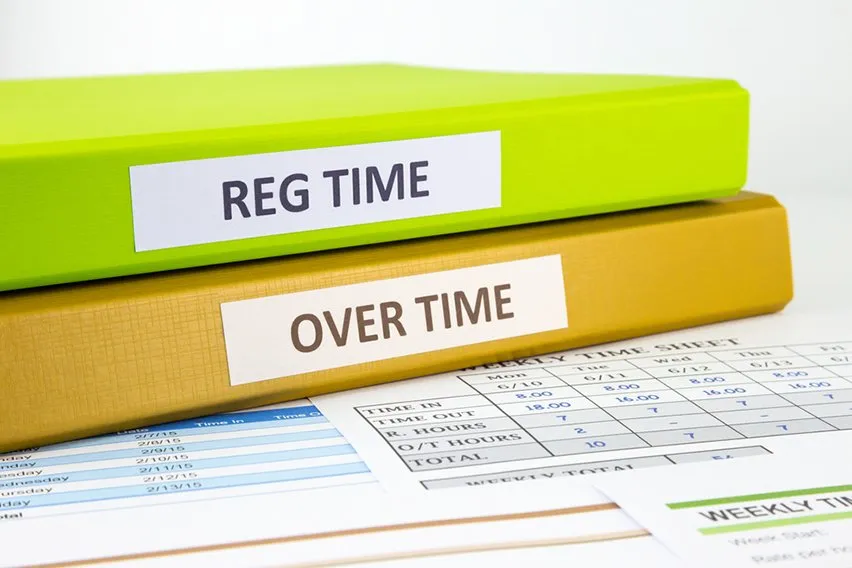Productivity Vs Efficiency: What’s the Difference?

Learn all about the subtle differences between productivity and efficiency.
Aren’t we all tempted to pile more onto our workload? It feels like the more productive we are, the more valuable our work is. But that isn’t true at all. Being productive doesn’t mean that your work is efficient.
It’s normal to conflate the two terms but they couldn’t be more different. Let’s debunk the definitions of efficiency and productivity.
Here’s What We’ll Cover:
What Is the Definition of Productivity?
What Is the Definition of Efficiency?
The difference between productivity and efficiency?
What Is the Definition of Productivity?
The dictionary definition of productivity is “effectiveness of productive effort”. That is to say that you are getting a lot out of what you put in. The level of effort is in contrast to the level of production.
Productivity is measured by output. How much work are you producing? The quantity of your results is what matters most.
Productivity differs from profession to profession. Say you’re a window cleaner. You clean the windows of 20 houses one week and 25 houses the next. Your second week was therefore more productive. This is harder to measure with office-based work but you’ll have your own measures of output.

What Is the Definition of Efficiency?
The dictionary definition of efficiency is “working in a well-organized and competent way”.
In manufacturing, efficiency means “achieving maximum productivity with minimum wasted effort or expense”.
So this is about maintaining the quality of your work rather than solely increasing your output.
Let’s take the window cleaner example again. You may stick to doing 20 houses per week but clean them to the same standard in half the time. Perhaps you used a different cleaning tool that made your work more efficient. It’s not how much work you do, it’s how you do it!
The difference between productivity and efficiency?
- Quality Over Quantity
One of the more obvious differences in the approach for each term. Efficiency takes a qualitative approach. Productivity takes a quantitative approach. Quantity vs quality is a classic debate. The truth is always a bit of both. You want to produce more to an extent, but to the same high standards. - Efficiency Emphasizes Cost
Productivity doesn’t typically take costs into account. If you can make more, you are being productive. The bottom line doesn’t factor into that equation. But for an efficient workflow, the cost needs to make sense. A purely productive mindset may encourage you to make your own website. An efficient mindset may remind you that you’re terrible at making websites and the time cost is not worth it. It’s better to outsource so that you can use that time to do more high-value activities. - Raw vs Refined
There are raw measures and refined measures. Productivity is a raw measure. It purely accounts for output with no further detail. It doesn’t matter how the work is done or how much it cost to do it. Productivity just wants a completed to-do list. Efficiency is a refined measure. It takes a more nuanced look at the complete picture. Was the completed work actually useful to the company? Will it drive revenue? Did it take far longer than it should have? Efficiency is a more detailed portrait of work habits.

You Need Both
For any complete work balance, you need both efficiency and productivity. It’s not useful to work a lot if what you are working on is completely useless to the growth of your company. Likewise, you can have the most high-quality product or service in the world. It is no use if you cannot fulfill demand with some productive habits. They go hand in hand.
Your level of efficiency is lacking if…
- There is increased stress from overwork in your company. Reaching a maximum level of productive capacity could lead to burnout
- You are spending money frivolously on things that aren’t moving the business forward
- You are spending a lot on overtime labor hours
Your productivity levels are lacking if…
- You are cutting corners to save money that is hurting your quality
- Deadlines are not being met because of overemphasis on quality output. This is poor time management
- You are turning workflows upside down that undermines your employees’ work
- Spending too much time on low-value activities
Key Takeaways
Striking a balance between productivity and efficiency is crucial to business longevity. The best way to build a team is to hire productive people and create solid measures of efficiency. The ultimate goal is to work smarter, no harder.
For more productivity and efficiency tips, head to our resource hub.
RELATED ARTICLES

 Time Management Schedule: An Extensive Guide
Time Management Schedule: An Extensive Guide 7 Tips for Time Management to Boost Productivity At Work
7 Tips for Time Management to Boost Productivity At Work Salaried Employees Hours: How Many Hours Should a Salaried Employee Work?
Salaried Employees Hours: How Many Hours Should a Salaried Employee Work? How Many Hours Does the Average Person Work Per Week?
How Many Hours Does the Average Person Work Per Week? How to Respond to a Performance Improvement Plan (7 Steps)
How to Respond to a Performance Improvement Plan (7 Steps) What Is Subscription Management? 4 Best Software
What Is Subscription Management? 4 Best Software